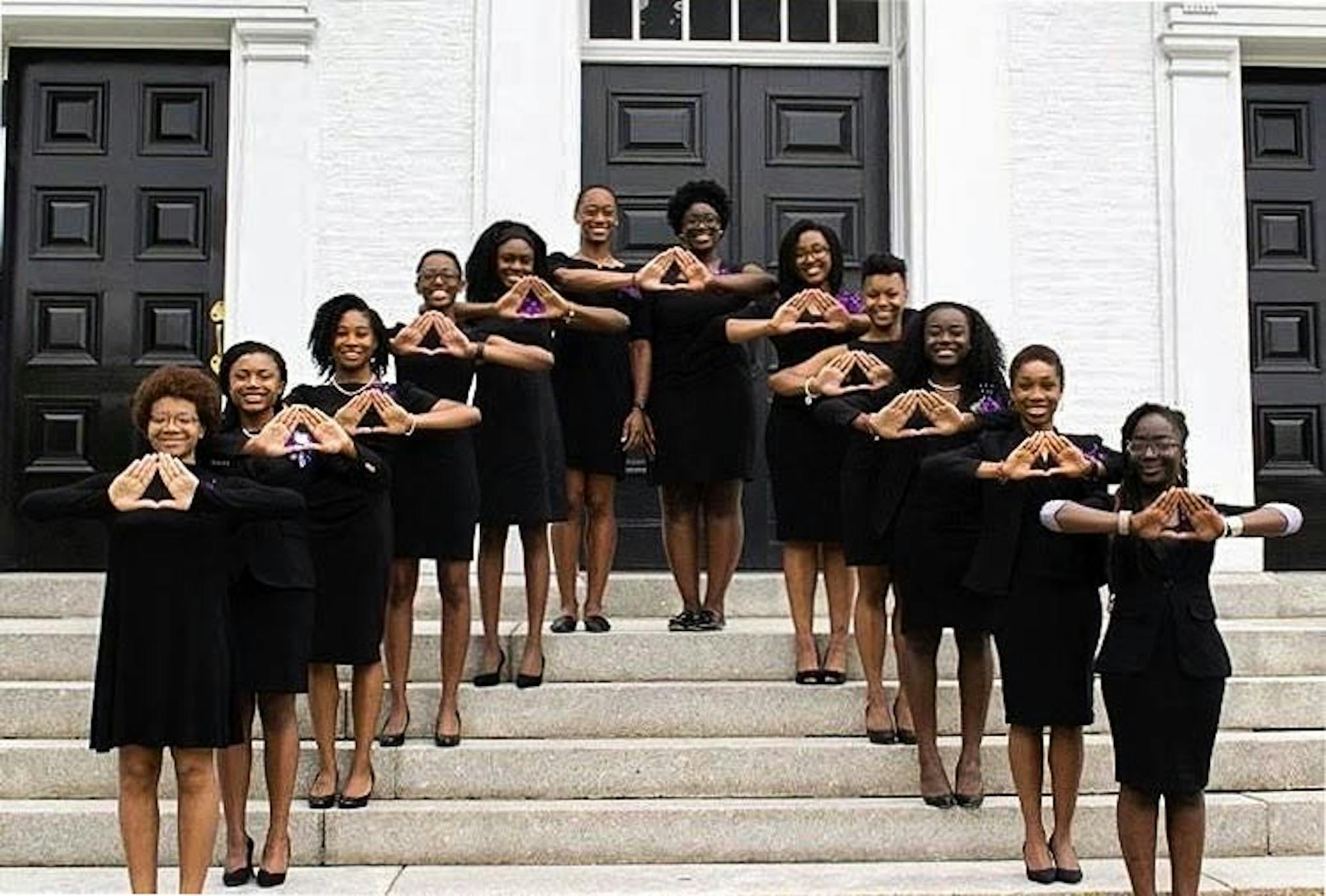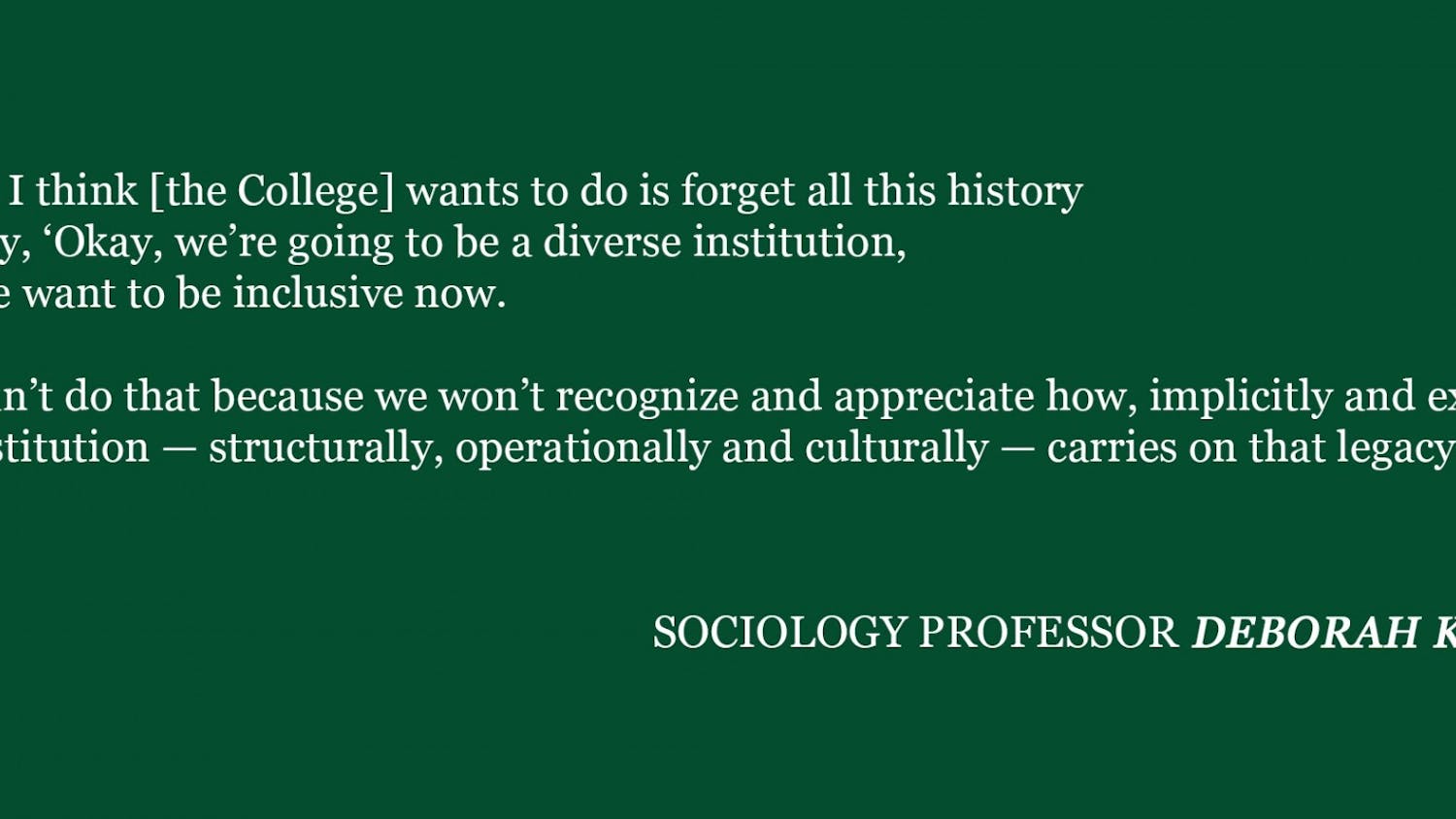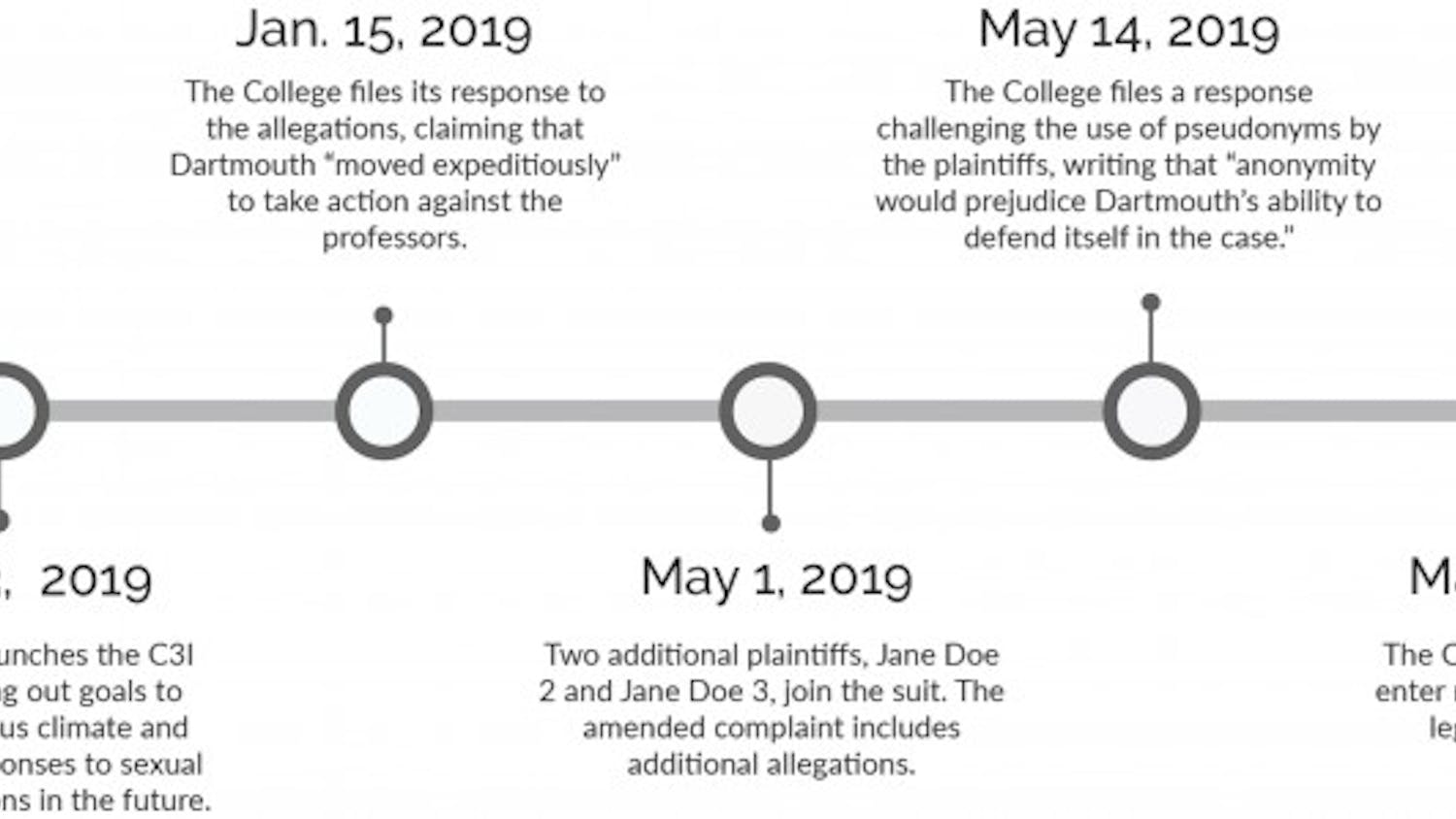In honor of Juneteenth — a holiday commemorating the end of slavery in the U.S. — members of Delta Sigma Theta sorority participated in a Zoom discussion on Friday hosted by NextGen New Hampshire, the state wing of the national nonprofit and political action committee NextGen America. During the event, panelists discussed topics ranging from the significance of the holiday to the experiences of Black women at the College.
NextGen New Hampshire hosted the panel as part of a nationwide series of online events to celebrate Juneteenth. The event was open to Dartmouth students and New Hampshire residents, and saw approximately 20 people attend. Digital director for NextGen New Hampshire Ed Taylor moderated the 30-minute discussion between Delta sorority members Dali Okolo ’22 and Daniella Omeruo ’21. Omeruo, a volunteer with NextGen since fall 2018, worked with Taylor to organize the event and invited Delta members to participate.
During the event, Omeruo and Okolo responded to several questions posed by Taylor.
The panelists first discussed Juneteenth, which marks the day in 1865 when the last group of enslaved people in the U.S. learned of their freedom.
“155 years ago today is when we celebrate our manifestation, our independence day,” Taylor said, adding that he wanted people to maintain the energy of Juneteenth and to “continue to celebrate the excellence of Black people.”
He added that for Black people, he considers Juneteenth to be their “independence day because [independence] was not earned on July 4, 1776.”
Omeruo said that this year’s Juneteenth was about acknowledging that “there is still work to be done,” but that it is also a day to “celebrate, reflect on history, and be prideful in being Black.”
She added that she hopes that people commemorate Juneteenth in a similar fashion to July 4 because Juneteenth is a “day of celebration and a day of pride.” She said that Juneteenth is a “day to read your favorite Black author, watch your favorite Black documentary [and] support your local Black businesses.”
Okolo said that this was the first year that she had seen a push to learn about Juneteenth.
Chemistry graduate student Aileen Eagleton, who attended the event, said that she found the discussion informative.
“I tried to educate myself on Juneteenth because in the education system I went to, I don’t think [Juneteenth] is discussed that much, if at all,” she said.
She added that she decided to attend the event because “it is super important right now to hear Black voices and hear their stories,” and added that it was important for her as an ally to “be present and listen.”
One of Eagleton’s takeaways from the event was the impact of Black women in leading human rights movements.
“Gay rights, and women’s rights, and many other movements would not be possible without Black women,” Eagleton said. “Black women have done so much for human rights, and they definitely deserve more respect and recognition.”
In an interview after the discussion panel, Omeruo said that College President Phil Hanlon’s email on Thursday to the Dartmouth community reflecting on the importance of Juneteenth and history professor Matthew Delmont’s article on the meaning of Juneteenth on the College’s website were “huge step[s] in educating the Dartmouth community.”
However, while Omeruo thought these efforts were a “great first step,” she said that she is “interested to see what else will be done to ensure that every student at Dartmouth feels comfortable in the spaces at Dartmouth.”
Okolo also noted after the panel that she appreciated that Hanlon had asked supervisors and managers at the College to be “flexible” with employees who would be taking time off to celebrate the holiday.
That said, Okolo added that she would like to see “more steps forward in recognizing and making a considered effort to educate on Black history and the significance of the history and uplifting Black voices and people.”
In addition to talking about Juneteenth, the panel also discussed how non-Black students can be allies for their peers.
“After you have acknowledged that there is wrongdoing and systemic racism, educate yourself and listen to others around you,” Okolo said. “You can’t acknowledge that marginalized communities are under attack and expect them to educate you.”
Omeruo added that “listening and educating yourself is the best thing you can do.”
The panel also included discussion on the experiences of Black female students at Dartmouth.
Okolo reflected that being Black at Dartmouth is often “really hard because, in most or all of my classes, I am the only Black person, let alone the only Black female.”
She added that while Black communities exist on campus, Black students often “have to seek out the communities.” However, she noted that “when you do seek [the community] out, it is very strong and very present. We have amazing Black leaders on campus.”
Omeruo credited the Shabazz Center for Intellectual Inquiry with providing her upperclassmen mentors and a sense of community on campus.
“For being a minority on campus, even though it is not a lot of us, I wouldn’t say it is hard to find a community because even though we are small, we are very visible,” she said.
While Okolo appreciates the “close-knit nature” of the Black community on campus, she wishes “there were more Black students and students of color in general on campus.”
Omeruo said that she hopes that attendees of the event “learn a little bit about some parts of Black history,” and noted that “Black fraternities and sororities are definitely a pillar of strength and pride in the Black community.”
She said that joining Delta sorority has given her a “grounding” and a sense of empowerment, adding that the sorority has made her a stronger person.





